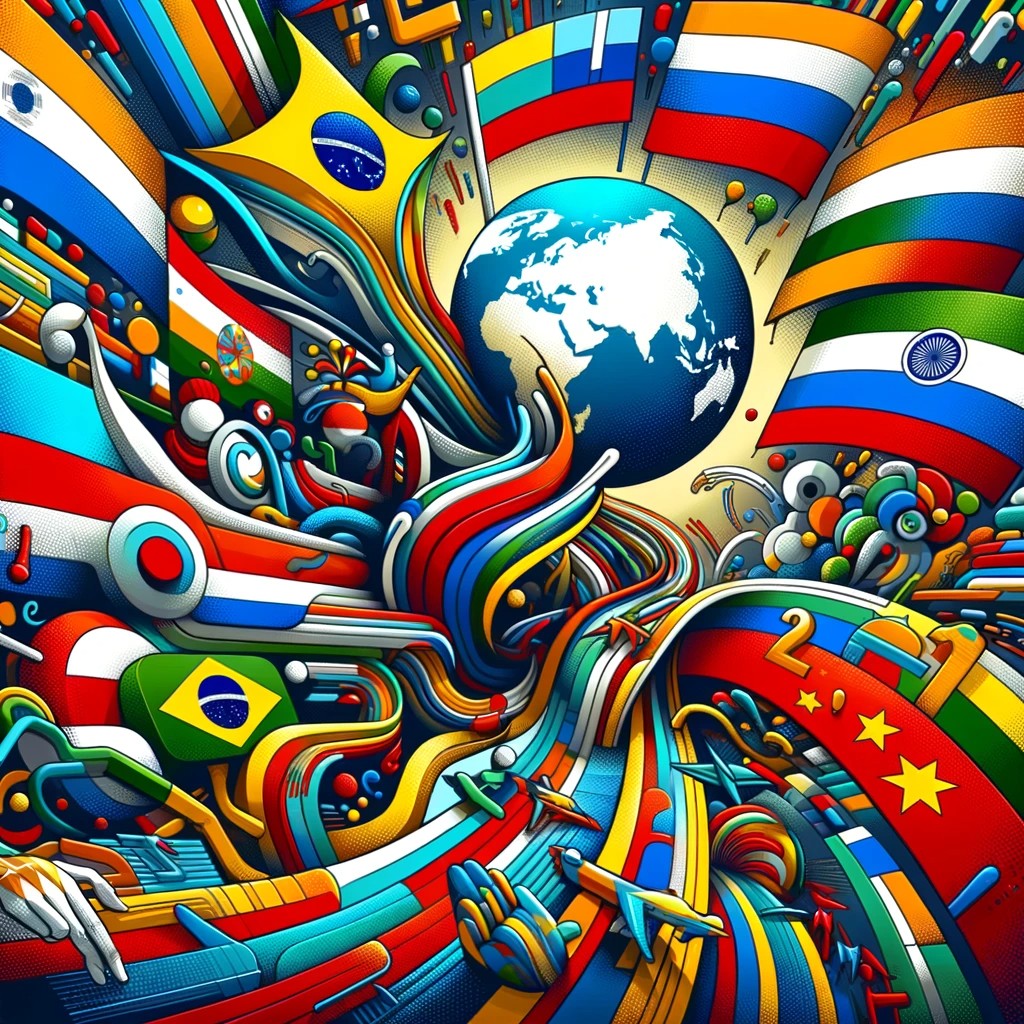The global political arena is abuzz with the latest development: a staggering 25 nations are queuing up to join BRICS in 2024. This news is not just a mere addition to international diplomacy; it’s a seismic shift in the global power balance. Spearheaded by Russia’s President Vladimir Putin’s announcement and echoed by South African BRICS Ambassador Anil Sooklal, this potential expansion is more than just a numerical increase. It’s a testament to the growing allure of BRICS as a counterbalance to traditional Western-dominated institutions.
The Lineup of Aspiring BRICS Members
The list of countries eager to join BRICS reads like a roll call of diverse global players. From Algeria to Zimbabwe, these nations span continents, economies, and cultures. Ten of these, including heavyweights like Pakistan and Bolivia, have already formalized their applications. The remaining fifteen, with countries as varied as Mexico and Syria, have shown a keen interest. This eclectic mix of aspirants reflects a world increasingly looking towards alternative alliances and economic models.
This interest in BRICS is not just a diplomatic nicety. It’s a strategic move for many of these countries seeking to diversify their international partnerships and reduce reliance on traditional Western economic systems. The inclusion of major economies like Turkey and potential members from the Middle East signals a shift in global economic dynamics. It suggests a world where economic alliances are no longer just about geographical proximity but about shared goals and mutual benefits.
What This Expansion Means for Global Dynamics
The expansion of BRICS could reshape the world’s economic landscape. It’s not just about adding new members; it’s about the changing nature of global power. The original BRICS nations – Brazil, Russia, India, China, and South Africa – represented a new wave of economic development outside the Western paradigm. With this potential influx of 25 more countries, BRICS could transform into a more formidable bloc, possibly influencing global economic policies and challenging the dollar’s dominance.
This move has different implications for the existing members of BRICS. While China views this as an opportunity to bolster its global influence, India remains cautious, wary of the group becoming overly China-centric. The new members could bring a wealth of resources, markets, and geopolitical diversity, enhancing the bloc’s capacity to negotiate in a US-centric world.
The addition of major oil producers like Saudi Arabia and Iran could give BRICS more leverage in global energy markets. This could lead to significant shifts in how global oil trade is conducted, potentially even in currencies other than the dollar. However, this expansion is not just about economics; it’s a strategic realignment reflecting a multipolar world where emerging economies are asserting their place on the global stage.
The eagerness of these 25 countries to join BRICS is a clear indicator of a shifting global order. It reflects a world looking beyond traditional power centers and seeking new alliances that better represent their interests and aspirations. This potential expansion of BRICS is not just about adding new members; it’s about redefining global economic and political dynamics. As the world watches, the BRICS summit in Russia’s Kazan region could mark the beginning of a new chapter in international relations. This development is not just significant for the countries involved but for the entire global community as it signals a move towards a more diversified and multipolar world order.





